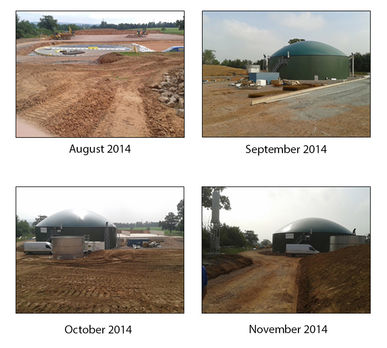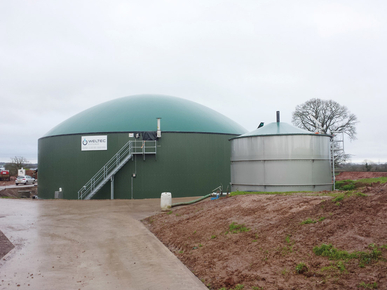Beat the Clock with WELTEC
Fast construction of biogas plants is more important than ever
On July 21, 2015 the Department of Energy and Climate Change (DECC) announced a consultation period on proposed changes to the feed-In tariff accreditation. The consultation is relatively short and runs up to the 19th August. DECC has indicated an announcement soon after.
For the biogas industry this is likely to mean the abolition of pre-accreditation. This makes it possible in the future to lower the feed-in tariff (FiT) during the development phase of anaerobic digestion projects up to 5 megawatts capacity. To date, pre-accreditation has helped secure a feed-in tariff rate and positive investment climate: Operators had security of promised feed-in tariffs when their plant went live within twelve months from the pre-accreditation, so this year could be used for the final engineering and the construction.
With the announced changes, the fast realization of projects currently under development is critical. Only when projects are implemented quickly, can you then calculate the quarterly digressions of the feed-in tariff. An example of the competitive advantage offered by WELTEC BIOPOWER is the 500kw agricultural biogas plant which was recently built near Cullompton (Devon). The experienced team of engineers and biologists constructed and commissioned the plant fast, on time and within budget, to a tight deadline. The construction team arrived on site in August 2014, and a successful G59 test was achieved in December 2014. The flexible modular design of the stainless steel tanks as well as container solutions for the CHP, control unit and pump block were the key factors for assembly to commissioning after only a few months.
"Nevertheless, the termination of pre-accreditation will have a devastating effect on investors and not least fatal consequences for the achievement of climate change goals" said Jens Albartus, the Managing Director of the biogas plant manufacturer WELTEC BIOPOWER (UK) Ltd. According to Mr Albartus, the complicating factor is that the abolition of the pre-accreditation is to be adopted in September and thus an extremely short time frame. The announcement to subject a further revision of the feed-in tariffs this year is very counterproductive, said Mr Albartus.
However, the manufacturer WELTEC BIOPOWER can help those affected by the changes publicized by DECC, and has an encouraging signal to the biogas industry as an answer to the announcement. "With an experienced partner at your side, who implements AD projects quickly clients from all sectors can still realize an economic biogas plant operation "emphasizes Mr Albartus. The director asks the government for a sustainable long-term strategy for the British economy, to which the participants can orientate. "The feed-in tariff is a success story and such changes will be a massive risk" emphasizes Mr Albartus.
These conditions are also necessary so that the UK achieves their ambitious goal: To deploy 15 percent of energy needs from renewable energy sources by the year 2020. Furthermore, the CO2 emissions are to be reduced compared to 1990 by about three quarters. "In addition to wind and solar power, there must be another renewable source such as biogas, so the ecological energy mix has a solid basis" summarizes Jens Albartus.











